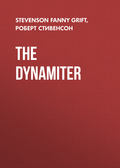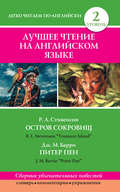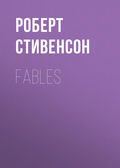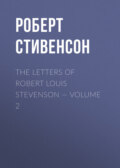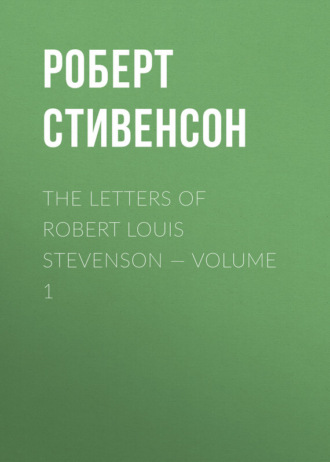
Роберт Льюис Стивенсон
The Letters of Robert Louis Stevenson — Volume 1
I get up to add one thing more. There is in the hotel a boy in whom I take the deepest interest. I cannot tell you his age, but the very first time I saw him (when I was at dinner yesterday) I was very much struck with his appearance. There is something very leonine in his face, with a dash of the negro especially, if I remember aright, in the mouth. He has a great quantity of dark hair, curling in great rolls, not in little corkscrews, and a pair of large, dark, and very steady, bold, bright eyes. His manners are those of a prince. I felt like an overgrown ploughboy beside him. He speaks English perfectly, but with, I think, sufficient foreign accent to stamp him as a Russian, especially when his manners are taken into account. I don't think I ever saw any one who looked like a hero before. After breakfast this morning I was talking to him in the court, when he mentioned casually that he had caught a snake in the Riesengebirge. 'I have it here,' he said; 'would you like to see it?' I said yes; and putting his hand into his breast-pocket, he drew forth not a dried serpent skin, but the head and neck of the reptile writhing and shooting out its horrible tongue in my face. You may conceive what a fright I got. I send off this single sheet just now in order to let you know I am safe across; but you must not expect letters often.
R. L. STEVENSON.
P.S. — The snake was about a yard long, but harmless, and now, he says, quite tame.
Letter: TO MRS. THOMAS STEVENSON
HOTEL LANDSBERG, FRANKFURT, MONDAY, 29TH JULY 1872
... LAST night I met with rather an amusing adventurette. Seeing a church door open, I went in, and was led by most importunate finger-bills up a long stair to the top of the tower. The father smoking at the door, the mother and the three daughters received me as if I was a friend of the family and had come in for an evening visit. The youngest daughter (about thirteen, I suppose, and a pretty little girl) had been learning English at the school, and was anxious to play it off upon a real, veritable Englander; so we had a long talk, and I was shown photographs, etc., Marie and I talking, and the others looking on with evident delight at having such a linguist in the family. As all my remarks were duly translated and communicated to the rest, it was quite a good German lesson. There was only one contretemps during the whole interview — the arrival of another visitor, in the shape (surely) the last of God's creatures, a wood-worm of the most unnatural and hideous appearance, with one great striped horn sticking out of his nose like a boltsprit. If there are many wood-worms in Germany, I shall come home. The most courageous men in the world must be entomologists. I had rather be a lion-tamer.
To-day I got rather a curiosity — LIEDER UND BALLADEN VON ROBERT BURNS, translated by one Silbergleit, and not so ill done either. Armed with which, I had a swim in the Main, and then bread and cheese and Bavarian beer in a sort of cafe, or at least the German substitute for a cafe; but what a falling off after the heavenly forenoons in Brussels!
I have bought a meerschaum out of local sentiment, and am now very low and nervous about the bargain, having paid dearer than I should in England, and got a worse article, if I can form a judgment.
Do write some more, somebody. To-morrow I expect I shall go into lodgings, as this hotel work makes the money disappear like butter in a furnace. — Meanwhile believe me, ever your affectionate son,
R. L. STEVENSON.
Letter: TO MRS. THOMAS STEVENSON
HOTEL LANDSBERG, THURSDAY, 1ST AUGUST 1872
... YESTERDAY I walked to Eckenheim, a village a little way out of Frankfurt, and turned into the alehouse. In the room, which was just such as it would have been in Scotland, were the landlady, two neighbours, and an old peasant eating raw sausage at the far end. I soon got into conversation; and was astonished when the landlady, having asked whether I were an Englishman, and received an answer in the affirmative, proceeded to inquire further whether I were not also a Scotchman. It turned out that a Scotch doctor — a professor — a poet — who wrote books — GROSS WIE DAS — had come nearly every day out of Frankfurt to the ECKENHEIMER WIRTHSCHAFT, and had left behind him a most savoury memory in the hearts of all its customers. One man ran out to find his name for me, and returned with the news that it was COBIE (Scobie, I suspect); and during his absence the rest were pouring into my ears the fame and acquirements of my countryman. He was, in some undecipherable manner, connected with the Queen of England and one of the Princesses. He had been in Turkey, and had there married a wife of immense wealth. They could find apparently no measure adequate to express the size of his books. In one way or another, he had amassed a princely fortune, and had apparently only one sorrow, his daughter to wit, who had absconded into a KLOSTER, with a considerable slice of the mother's GELD. I told them we had no klosters in Scotland, with a certain feeling of superiority. No more had they, I was told — 'HIER IST UNSER KLOSTER!' and the speaker motioned with both arms round the taproom. Although the first torrent was exhausted, yet the Doctor came up again in all sorts of ways, and with or without occasion, throughout the whole interview; as, for example, when one man, taking his pipe out of his mouth and shaking his head, remarked APROPOS of nothing and with almost defiant conviction, 'ER WAR EIN FEINER MANN, DER HERR DOCTOR,' and was answered by another with 'YAW, YAW, UND TRANK IMMER ROTHEN WEIN.'
Setting aside the Doctor, who had evidently turned the brains of the entire village, they were intelligent people. One thing in particular struck me, their honesty in admitting that here they spoke bad German, and advising me to go to Coburg or Leipsic for German. — 'SIE SPRECHEN DA REIN' (clean), said one; and they all nodded their heads together like as many mandarins, and repeated REIN, SO REIN in chorus.
Of course we got upon Scotland. The hostess said, 'DIE SCHOTTLANDER TRINKEN GERN SCHNAPPS,' which may be freely translated, 'Scotchmen are horrid fond of whisky.' It was impossible, of course, to combat such a truism; and so I proceeded to explain the construction of toddy, interrupted by a cry of horror when I mentioned the HOT water; and thence, as I find is always the case, to the most ghastly romancing about Scottish scenery and manners, the Highland dress, and everything national or local that I could lay my hands upon. Now that I have got my German Burns, I lean a good deal upon him for opening a conversation, and read a few translations to every yawning audience that I can gather. I am grown most insufferably national, you see. I fancy it is a punishment for my want of it at ordinary times. Now, what do you think, there was a waiter in this very hotel, but, alas! he is now gone, who sang (from morning to night, as my informant said with a shrug at the recollection) what but 'S IST LANGE HER, the German version of Auld Lang Syne; so you see, madame, the finest lyric ever written will make its way out of whatsoever corner of patois it found its birth in.
'MEITZ HERZ IST IM HOCHLAND, MEAN HERZ IST NICHT HIER, MEIN HERZ IST IM HOCHLAND IM GRUNEN REVIER. IM GRUNEN REVIERE ZU JAGEN DAS REH; MEIN HERZ IST IM HOCHLAND, WO IMMER ICH GEH.'
I don't think I need translate that for you.
There is one thing that burthens me a good deal in my patriotic garrulage, and that is the black ignorance in which I grope about everything, as, for example, when I gave yesterday a full and, I fancy, a startlingly incorrect account of Scotch education to a very stolid German on a garden bench: he sat and perspired under it, however with much composure. I am generally glad enough to fall back again, after these political interludes, upon Burns, toddy, and the Highlands.
I go every night to the theatre, except when there is no opera. I cannot stand a play yet; but I am already very much improved, and can understand a good deal of what goes on.
FRIDAY, AUGUST 2, 1872. — In the evening, at the theatre, I had a great laugh. Lord Allcash in FRA DIAVOLO, with his white hat, red guide-books, and bad German, was the PIECE-DE-RESISTANCE from a humorous point of view; and I had the satisfaction of knowing that in my own small way I could minister the same amusement whenever I chose to open my mouth.
I am just going off to do some German with Simpson. — Your affectionate son,
R. L. STEVENSON.
Letter: TO THOMAS STEVENSON
FRANKFURT, ROSENGASSE 13, AUGUST 4, 1872
MY DEAR FATHER, — You will perceive by the head of this page that we have at last got into lodgings, and powerfully mean ones too. If I were to call the street anything but SHADY, I should be boasting. The people sit at their doors in shirt-sleeves, smoking as they do in Seven Dials of a Sunday.
Last night we went to bed about ten, for the first time HOUSEHOLDERS in Germany — real Teutons, with no deception, spring, or false bottom. About half-past one there began such a trumpeting, shouting, pealing of bells, and scurrying hither and thither of feet as woke every person in Frankfurt out of their first sleep with a vague sort of apprehension that the last day was at hand. The whole street was alive, and we could hear people talking in their rooms, or crying to passers-by from their windows, all around us. At last I made out what a man was saying in the next room. It was a fire in Sachsenhausen, he said (Sachsenhausen is the suburb on the other side of the Main), and he wound up with one of the most tremendous falsehoods on record, 'HIER ALLES RUHT — here all is still.' If it can be said to be still in an engine factory, or in the stomach of a volcano when it is meditating an eruption, he might have been justified in what he said, but not otherwise. The tumult continued unabated for near an hour; but as one grew used to it, it gradually resolved itself into three bells, answering each other at short intervals across the town, a man shouting, at ever shorter intervals and with superhuman energy, 'FEUER, — IM SACHSENHAUSEN, and the almost continuous winding of all manner of bugles and trumpets, sometimes in stirring flourishes, and sometimes in mere tuneless wails. Occasionally there was another rush of feet past the window, and once there was a mighty drumming, down between us and the river, as though the soldiery were turning out to keep the peace. This was all we had of the fire, except a great cloud, all flushed red with the glare, above the roofs on the other side of the Gasse; but it was quite enough to put me entirely off my sleep and make me keenly alive to three or four gentlemen who were strolling leisurely about my person, and every here and there leaving me somewhat as a keepsake... However, everything has its compensation, and when day came at last, and the sparrows awoke with trills and CAROL-ETS, the dawn seemed to fall on me like a sleeping draught. I went to the window and saw the sparrows about the eaves, and a great troop of doves go strolling up the paven Gasse, seeking what they may devour. And so to sleep, despite fleas and fire-alarms and clocks chiming the hours out of neighbouring houses at all sorts of odd times and with the most charming want of unanimity.
We have got settled down in Frankfurt, and like the place very much. Simpson and I seem to get on very well together. We suit each other capitally; and it is an awful joke to be living (two would-be advocates, and one a baronet) in this supremely mean abode.
The abode is, however, a great improvement on the hotel, and I think we shall grow quite fond of it. — Ever your affectionate son,
R. L. STEVENSON.
Letter: TO MRS. THOMAS STEVENSON
13 ROSENGASSE, FRANKFURT, TUESDAY MORNING, AUGUST 1872
.. Last night I was at the theatre and heard DIE JUDIN (LA JUIVE), and was thereby terribly excited. At last, in the middle of the fifth act, which was perfectly beastly, I had to slope. I could stand even seeing the cauldron with the sham fire beneath, and the two hateful executioners in red; but when at last the girl's courage breaks down, and, grasping her father's arm, she cries out — O so shudderfully! — I thought it high time to be out of that GALERE, and so I do not know yet whether it ends well or ill; but if I ever afterwards find that they do carry things to the extremity, I shall think more meanly of my species. It was raining and cold outside, so I went into a BIERHALLE, and sat and brooded over a SCHNITT (half-glass) for nearly an hour. An opera is far more REAL than real life to me. It seems as if stage illusion, and particularly this hardest to swallow and most conventional illusion of them all — an opera — would never stale upon me. I wish that life was an opera. I should like to LIVE in one; but I don't know in what quarter of the globe I shall find a society so constituted. Besides, it would soon pall: imagine asking for three-kreuzer cigars in recitative, or giving the washerwoman the inventory of your dirty clothes in a sustained and FLOURISHOUS aria.
I am in a right good mood this morning to sit here and write to you; but not to give you news. There is a great stir of life, in a quiet, almost country fashion, all about us here. Some one is hammering a beef-steak in the REZ-DE-CHAUSSEE: there is a great clink of pitchers and noise of the pump-handle at the public well in the little square-kin round the corner. The children, all seemingly within a month, and certainly none above five, that always go halting and stumbling up and down the roadway, are ordinarily very quiet, and sit sedately puddling in the gutter, trying, I suppose, poor little devils! to understand their MUTTERSPRACHE; but they, too, make themselves heard from time to time in little incomprehensible antiphonies, about the drift that comes down to them by their rivers from the strange lands higher up the Gasse. Above all, there is here such a twittering of canaries (I can see twelve out of our window), and such continual visitation of grey doves and big-nosed sparrows, as make our little bye-street into a perfect aviary.
I look across the Gasse at our opposite neighbour, as he dandles his baby about, and occasionally takes a spoonful or two of some pale slimy nastiness that looks like DEAD PORRIDGE, if you can take the conception. These two are his only occupations. All day long you can hear him singing over the brat when he is not eating; or see him eating when he is not keeping baby. Besides which, there comes into his house a continual round of visitors that puts me in mind of the luncheon hour at home. As he has thus no ostensible avocation, we have named him 'the W.S.' to give a flavour of respectability to the street.
Enough of the Gasse. The weather is here much colder. It rained a good deal yesterday; and though it is fair and sunshiny again to- day, and we can still sit, of course, with our windows open, yet there is no more excuse for the siesta; and the bathe in the river, except for cleanliness, is no longer a necessity of life. The Main is very swift. In one part of the baths it is next door to impossible to swim against it, and I suspect that, out in the open, it would be quite impossible. — Adieu, my dear mother, and believe me, ever your affectionate son,
ROBERT LOUIS STEVENSON(RENTIER).
Letter: TO CHARLES BAXTER
17 HERIOT ROW, EDINBURGH, SUNDAY, FEBRUARY 2, 1873
MY DEAR BAXTER, — The thunderbolt has fallen with a vengeance now. On Friday night after leaving you, in the course of conversation, my father put me one or two questions as to beliefs, which I candidly answered. I really hate all lying so much now — a new found honesty that has somehow come out of my late illness — that I could not so much as hesitate at the time; but if I had foreseen the real hell of everything since, I think I should have lied, as I have done so often before. I so far thought of my father, but I had forgotten my mother. And now! they are both ill, both silent, both as down in the mouth as if — I can find no simile. You may fancy how happy it is for me. If it were not too late, I think I could almost find it in my heart to retract, but it is too late; and again, am I to live my whole life as one falsehood? Of course, it is rougher than hell upon my father, but can I help it? They don't see either that my game is not the light-hearted scoffer; that I am not (as they call me) a careless infidel. I believe as much as they do, only generally in the inverse ratio: I am, I think, as honest as they can be in what I hold. I have not come hastily to my views. I reserve (as I told them) many points until I acquire fuller information, and do not think I am thus justly to be called 'horrible atheist.'
Now, what is to take place? What a curse I am to my parents! O Lord, what a pleasant thing it is to have just DAMNED the happiness of (probably) the only two people who care a damn about you in the world.
What is my life to be at this rate? What, you rascal? Answer — I have a pistol at your throat. If all that I hold true and most desire to spread is to be such death, and a worse than death, in the eyes of my father and mother, what the DEVIL am I to do?
Here is a good heavy cross with a vengeance, and all rough with rusty nails that tear your fingers, only it is not I that have to carry it alone; I hold the light end, but the heavy burden falls on these two.
Don't — I don't know what I was going to say. I am an abject idiot, which, all things considered, is not remarkable. — Ever your affectionate and horrible atheist,
R. L. STEVENSON.
CHAPTER II — STUDENT DAYS — ORDERED SOUTH, SEPTEMBER 1873-JULY 1875
Letter: TO MRS. THOMAS STEVENSON
COCKFIELD RECTORY, SUDBURY, SUFFOLK, TUESDAY, JULY 28, 1873
MY DEAR MOTHER, — I am too happy to be much of a correspondent. Yesterday we were away to Melford and Lavenham, both exceptionally placid, beautiful old English towns. Melford scattered all round a big green, with an Elizabethan Hall and Park, great screens of trees that seem twice as high as trees should seem, and everything else like what ought to be in a novel, and what one never expects to see in reality, made me cry out how good we were to live in Scotland, for the many hundredth time. I cannot get over my astonishment — indeed, it increases every day — at the hopeless gulf that there is between England and Scotland, and English and Scotch. Nothing is the same; and I feel as strange and outlandish here as I do in France or Germany. Everything by the wayside, in the houses, or about the people, strikes me with an unexpected unfamiliarity: I walk among surprises, for just where you think you have them, something wrong turns up.
I got a little Law read yesterday, and some German this morning, but on the whole there are too many amusements going for much work; as for correspondence, I have neither heart nor time for it to-day.
R. L. S.
Letter: TO MRS. SITWELL
17 HERIOT ROW, EDINBURGH, SATURDAY, SEPTEMBER 6, 1873
I HAVE been to-day a very long walk with my father through some of the most beautiful ways hereabouts; the day was cold with an iron, windy sky, and only glorified now and then with autumn sunlight. For it is fully autumn with us, with a blight already over the greens, and a keen wind in the morning that makes one rather timid of one's tub when it finds its way indoors.
I was out this evening to call on a friend, and, coming back through the wet, crowded, lamp-lit streets, was singing after my own fashion, DU HAST DIAMANTEN UND PERLEN, when I heard a poor cripple man in the gutter wailing over a pitiful Scotch air, his club-foot supported on the other knee, and his whole woebegone body propped sideways against a crutch. The nearest lamp threw a strong light on his worn, sordid face and the three boxes of lucifer matches that he held for sale. My own false notes stuck in my chest. How well off I am! is the burthen of my songs all day long — DRUM IST SO WOHL MIR IN DER WELT! and the ugly reality of the cripple man was an intrusion on the beautiful world in which I was walking. He could no more sing than I could; and his voice was cracked and rusty, and altogether perished. To think that that wreck may have walked the streets some night years ago, as glad at heart as I was, and promising himself a future as golden and honourable!
SUNDAY, 11.20 A.M. — I wonder what you are doing now? — in church likely, at the TE DEUM. Everything here is utterly silent. I can hear men's footfalls streets away; the whole life of Edinburgh has been sucked into sundry pious edifices; the gardens below my windows are steeped in a diffused sunlight, and every tree seems standing on tiptoes, strained and silent, as though to get its head above its neighbour's and LISTEN. You know what I mean, don't you? How trees do seem silently to assert themselves on an occasion! I have been trying to write ROADS until I feel as if I were standing on my head; but I mean ROADS, and shall do something to them.
I wish I could make you feel the hush that is over everything, only made the more perfect by rare interruptions; and the rich, placid light, and the still, autumnal foliage. Houses, you know, stand all about our gardens: solid, steady blocks of houses; all look empty and asleep.
MONDAY NIGHT. — The drums and fifes up in the Castle are sounding the guard-call through the dark, and there is a great rattle of carriages without. I have had (I must tell you) my bed taken out of this room, so that I am alone in it with my books and two tables, and two chairs, and a coal-skuttle (or SCUTTLE) (?) and a DEBRIS of broken pipes in a corner, and my old school play-box, so full of papers and books that the lid will not shut down, standing reproachfully in the midst. There is something in it that is still a little gaunt and vacant; it needs a little populous disorder over it to give it the feel of homeliness, and perhaps a bit more furniture, just to take the edge off the sense of illimitable space, eternity, and a future state, and the like, that is brought home to one, even in this small attic, by the wide, empty floor.
You would require to know, what only I can ever know, many grim and many maudlin passages out of my past life to feel how great a change has been made for me by this past summer. Let me be ever so poor and thread-paper a soul, I am going to try for the best.
These good booksellers of mine have at last got a WERTHER without illustrations. I want you to like Charlotte. Werther himself has every feebleness and vice that could tend to make his suicide a most virtuous and commendable action; and yet I like Werther too — I don't know why, except that he has written the most delightful letters in the world. Note, by the way, the passage under date June 21st not far from the beginning; it finds a voice for a great deal of dumb, uneasy, pleasurable longing that we have all had, times without number. I looked that up the other day for ROADS, so I know the reference; but you will find it a garden of flowers from beginning to end. All through the passion keeps steadily rising, from the thunderstorm at the country-house — there was thunder in that story too — up to the last wild delirious interview; either Lotte was no good at all, or else Werther should have remained alive after that; either he knew his woman too well, or else he was precipitate. But an idiot like that is hopeless; and yet, he wasn't an idiot — I make reparation, and will offer eighteen pounds of best wax at his tomb. Poor devil! he was only the weakest — or, at least, a very weak strong man.
R. L. S.
Letter: TO MRS. SITWELL
17 HERIOT ROW, EDINBURGH, FRIDAY, SEPTEMBER 12, 1873
.. I WAS over last night, contrary to my own wish, in Leven, Fife; and this morning I had a conversation of which, I think, some account might interest you. I was up with a cousin who was fishing in a mill-lade, and a shower of rain drove me for shelter into a tumbledown steading attached to the mill. There I found a labourer cleaning a byre, with whom I fell into talk. The man was to all appearance as heavy, as HEBETE, as any English clodhopper; but I knew I was in Scotland, and launched out forthright into Education and Politics and the aims of one's life. I told him how I had found the peasantry in Suffolk, and added that their state had made me feel quite pained and down-hearted. 'It but to do that,' he said, 'to onybody that thinks at a'!' Then, again, he said that he could not conceive how anything could daunt or cast down a man who had an aim in life. 'They that have had a guid schoolin' and do nae mair, whatever they do, they have done; but him that has aye something ayont need never be weary.' I have had to mutilate the dialect much, so that it might be comprehensible to you; but I think the sentiment will keep, even through a change of words, something of the heartsome ring of encouragement that it had for me: and that from a man cleaning a byre! You see what John Knox and his schools have done.
SATURDAY. — This has been a charming day for me from morning to now (5 P.M.). First, I found your letter, and went down and read it on a seat in those Public Gardens of which you have heard already. After lunch, my father and I went down to the coast and walked a little way along the shore between Granton and Cramond. This has always been with me a very favourite walk. The Firth closes gradually together before you, the coast runs in a series of the most beautifully moulded bays, hill after hill, wooded and softly outlined, trends away in front till the two shores join together. When the tide is out there are great, gleaming flats of wet sand, over which the gulls go flying and crying; and every cape runs down into them with its little spit of wall and trees. We lay together a long time on the beach; the sea just babbled among the stones; and at one time we heard the hollow, sturdy beat of the paddles of an unseen steamer somewhere round the cape. I am glad to say that the peace of the day and scenery was not marred by any unpleasantness between us two.
I am, unhappily, off my style, and can do nothing well; indeed, I fear I have marred ROADS finally by patching at it when I was out of the humour. Only, I am beginning to see something great about John Knox and Queen Mary: I like them both so much, that I feel as if I could write the history fairly.
I have finished ROADS to-day, and send it off to you to see. The Lord knows whether it is worth anything! — some of it pleases me a good deal, but I fear it is quite unfit for any possible magazine. However, I wish you to see it, as you know the humour in which it was conceived, walking alone and very happily about the Suffolk highways and byeways on several splendid sunny afternoons. — Believe me, ever your faithful friend,
ROBERT LOUIS STEVENSON.
MONDAY. — I have looked over ROADS again, and I am aghast at its feebleness. It is the trial of a very ''prentice hand' indeed. Shall I ever learn to do anything well? However, it shall go to you, for the reasons given above.
Letter: TO MRS. SITWELL
EDINBURGH, TUESDAY, SEPTEMBER 16, 1873
.. I MUST be very strong to have all this vexation and still to be well. I was weighed the other day, and the gross weight of my large person was eight stone six! Does it not seem surprising that I can keep the lamp alight, through all this gusty weather, in so frail a lantern? And yet it burns cheerily.
My mother is leaving for the country this morning, and my father and I will be alone for the best part of the week in this house. Then on Friday I go south to Dumfries till Monday. I must write small, or I shall have a tremendous budget by then.
7.20 P.M. — I must tell you a thing I saw to-day. I was going down to Portobello in the train, when there came into the next compartment (third class) an artisan, strongly marked with smallpox, and with sunken, heavy eyes — a face hard and unkind, and without anything lovely. There was a woman on the platform seeing him off. At first sight, with her one eye blind and the whole cast of her features strongly plebeian, and even vicious, she seemed as unpleasant as the man; but there was something beautifully soft, a sort of light of tenderness, as on some Dutch Madonna, that came over her face when she looked at the man. They talked for a while together through the window; the man seemed to have been asking money. 'Ye ken the last time,' she said, 'I gave ye two shillin's for your ludgin', and ye said — ' it died off into whisper. Plainly Falstaff and Dame Quickly over again. The man laughed unpleasantly, even cruelly, and said something; and the woman turned her back on the carriage and stood a long while so, and, do what I might, I could catch no glimpse of her expression, although I thought I saw the heave of a sob in her shoulders. At last, after the train was already in motion, she turned round and put two shillings into his hand. I saw her stand and look after us with a perfect heaven of love on her face — this poor one-eyed Madonna — until the train was out of sight; but the man, sordidly happy with his gains, did not put himself to the inconvenience of one glance to thank her for her ill-deserved kindness.
I have been up at the Spec. and looked out a reference I wanted. The whole town is drowned in white, wet vapour off the sea. Everything drips and soaks. The very statues seem wet to the skin. I cannot pretend to be very cheerful; I did not see one contented face in the streets; and the poor did look so helplessly chill and dripping, without a stitch to change, or so much as a fire to dry themselves at, or perhaps money to buy a meal, or perhaps even a bed. My heart shivers for them.



